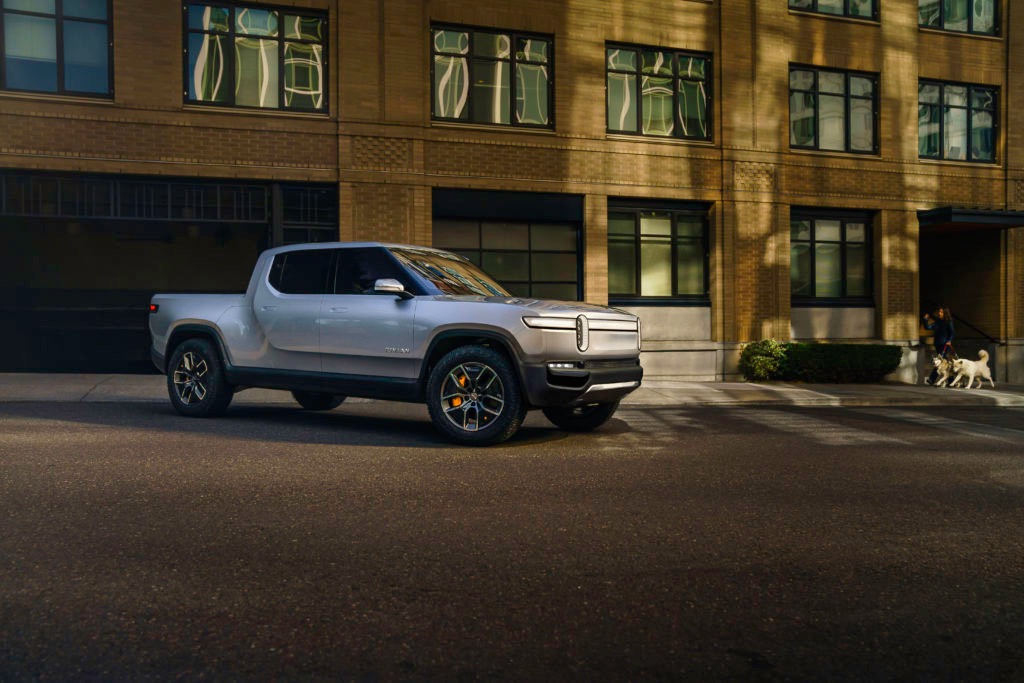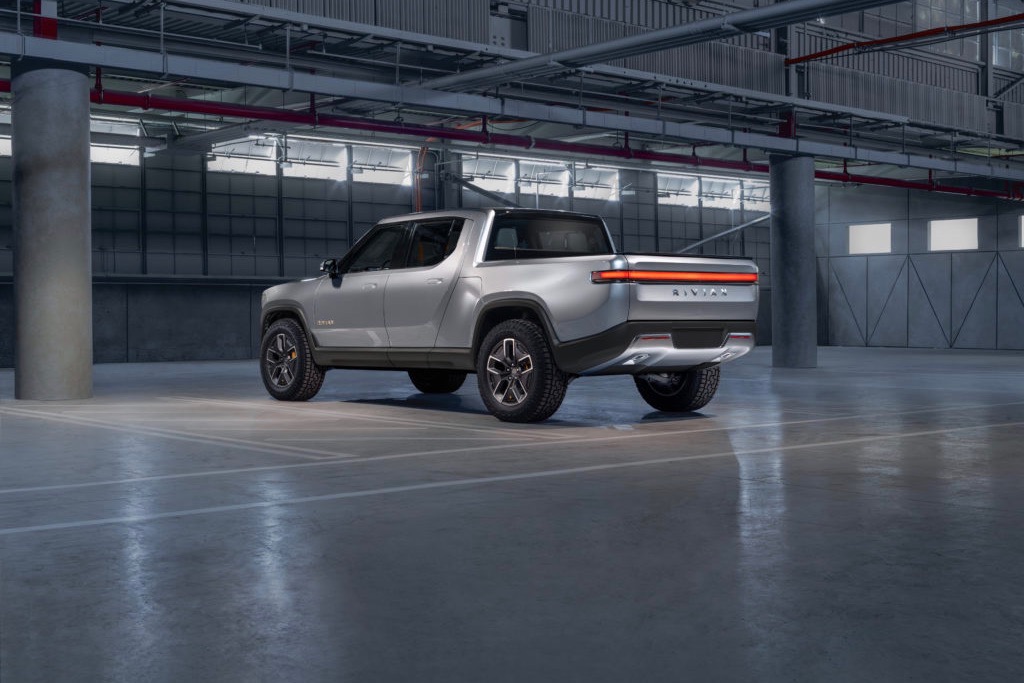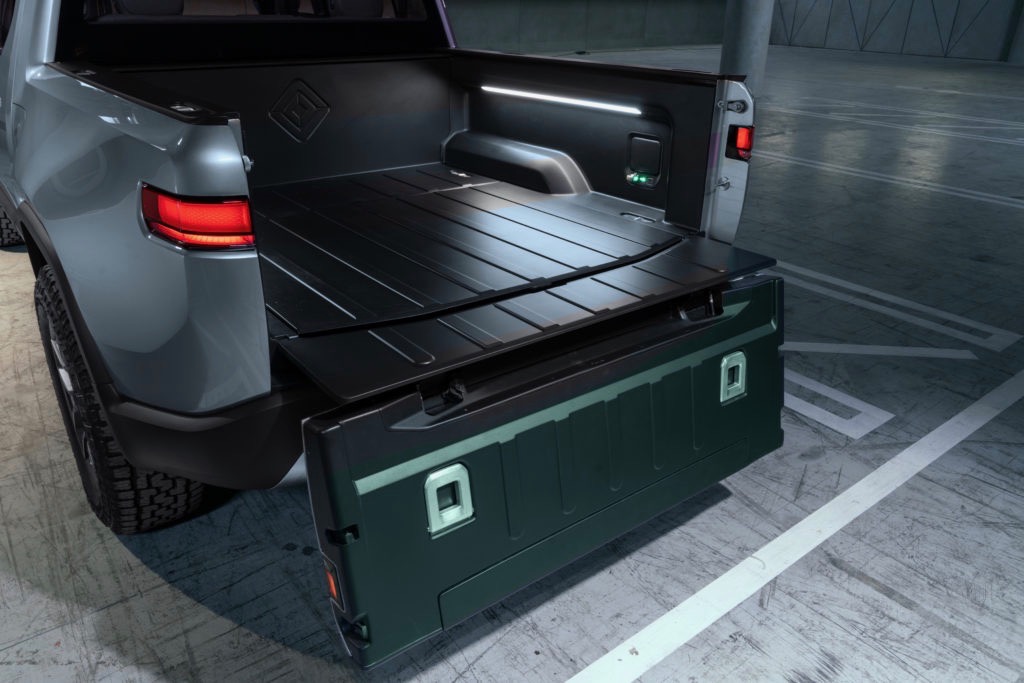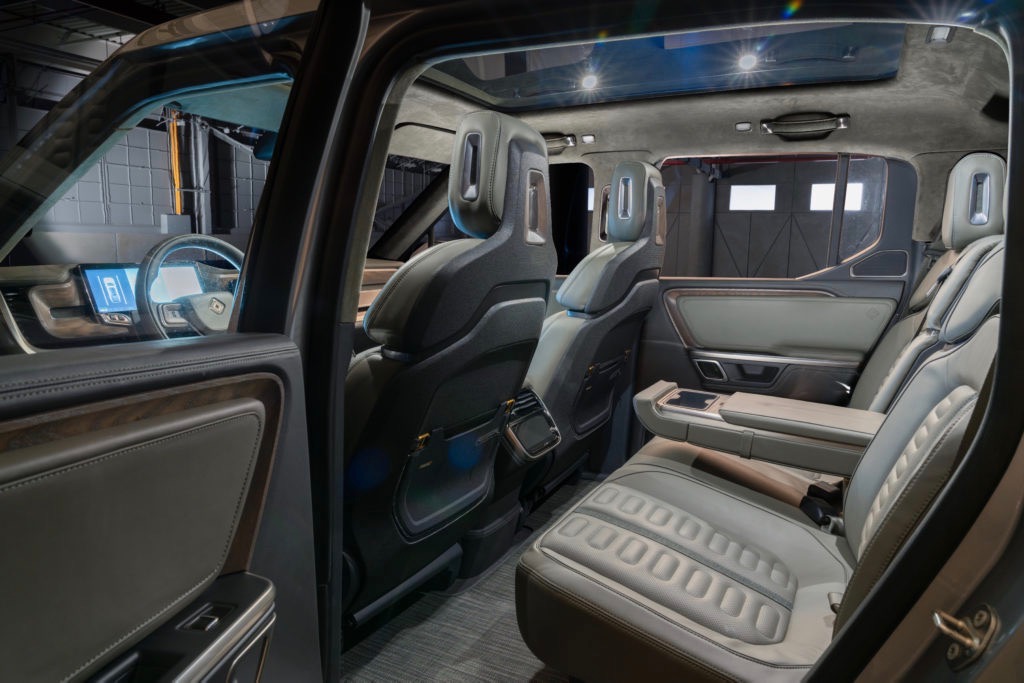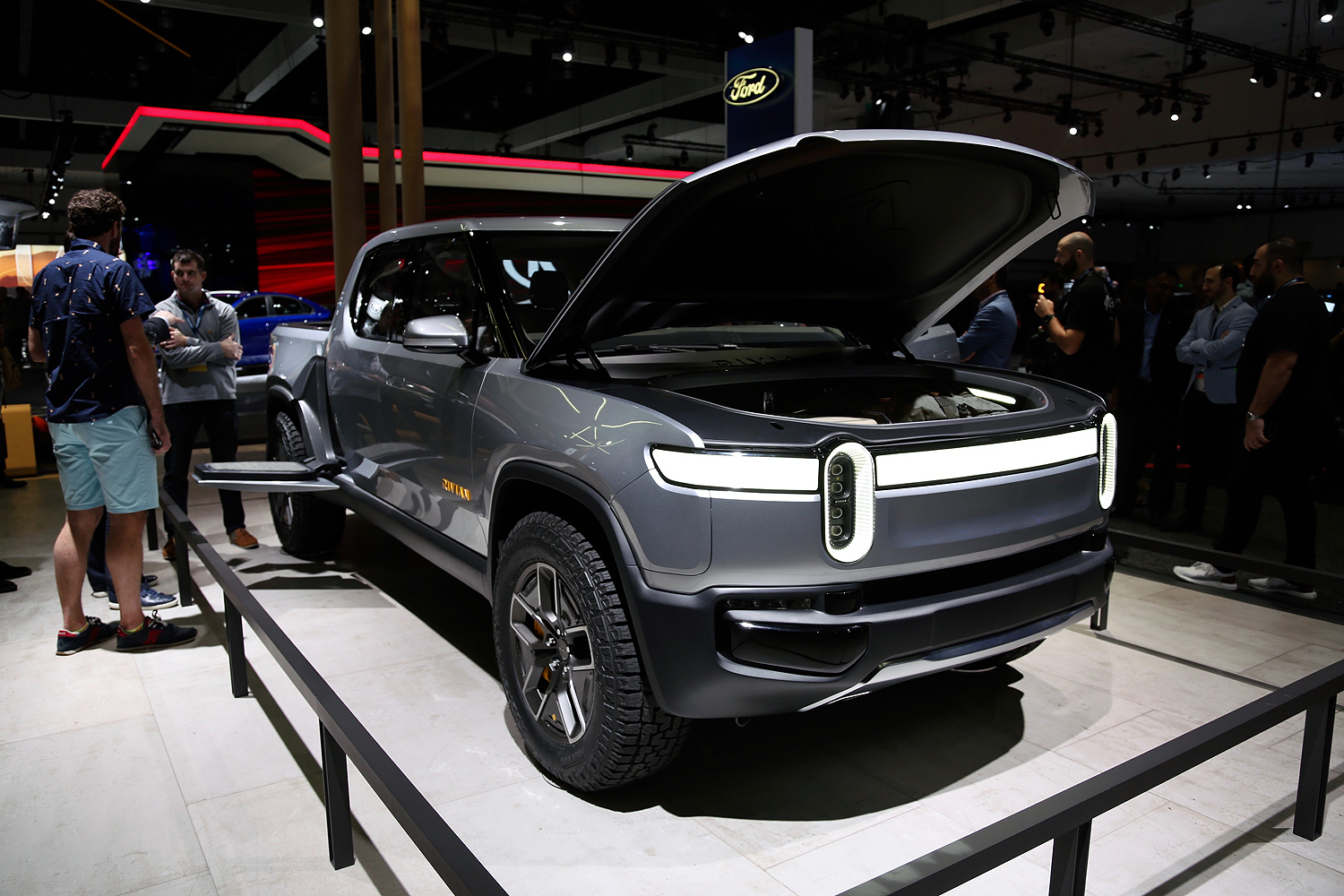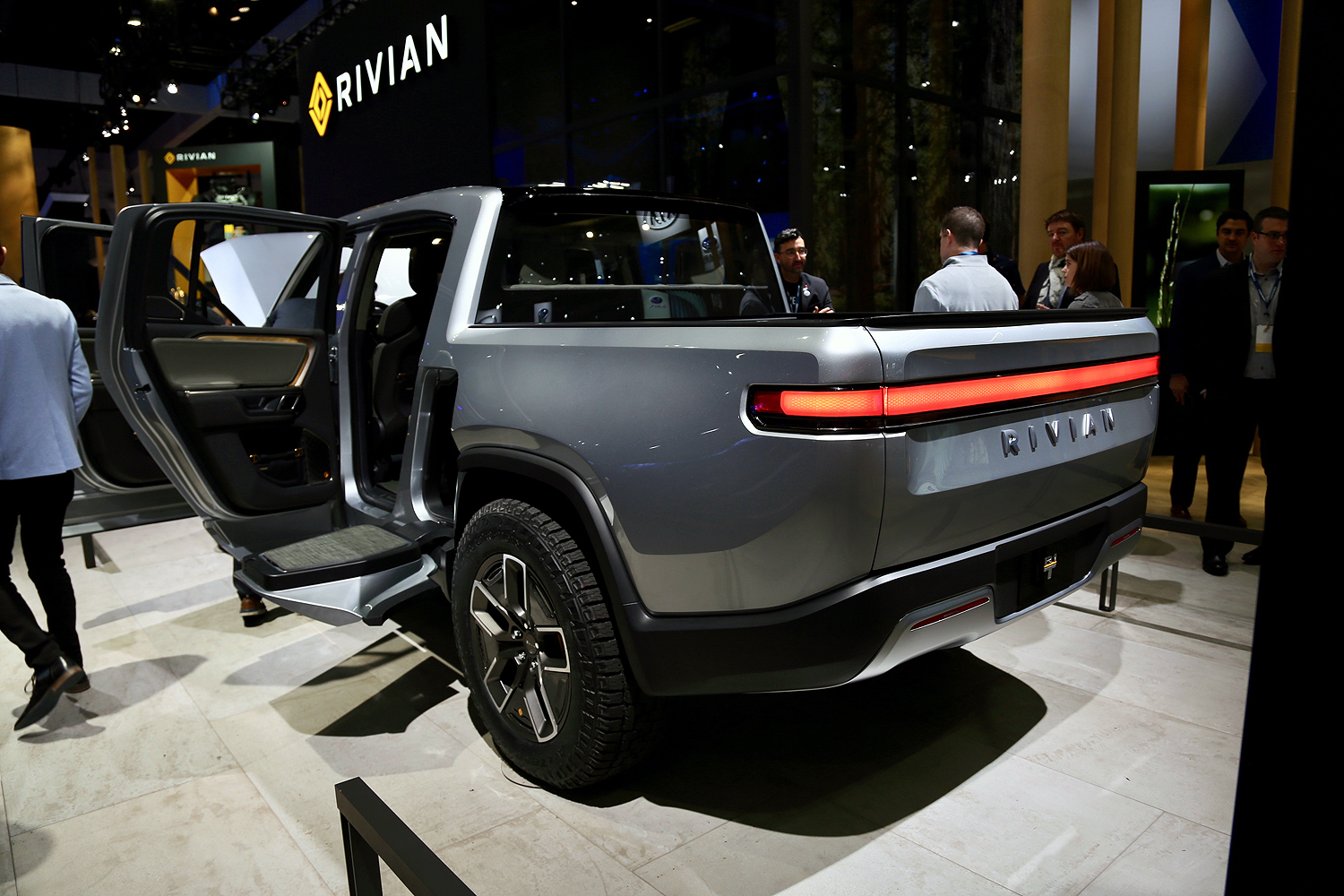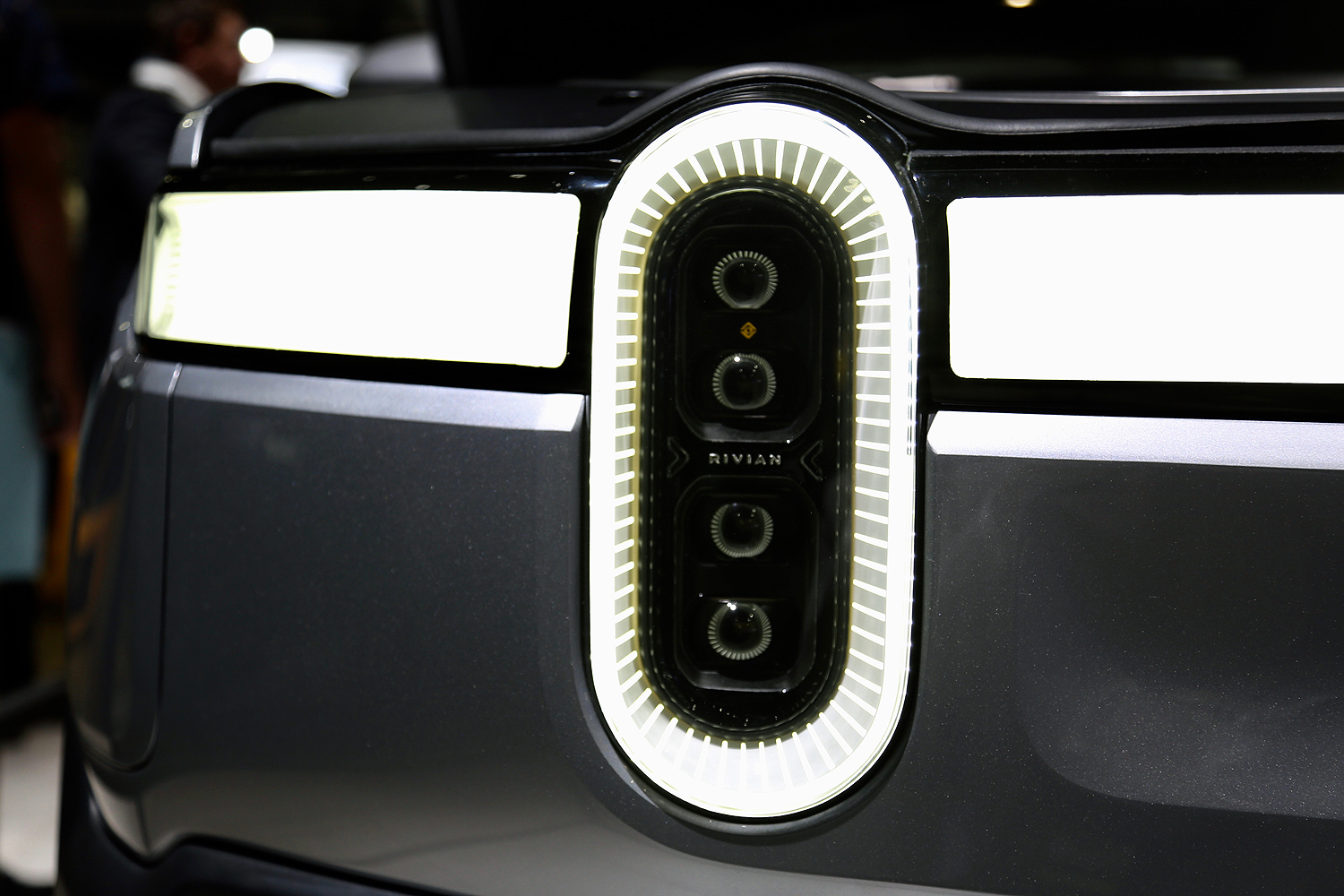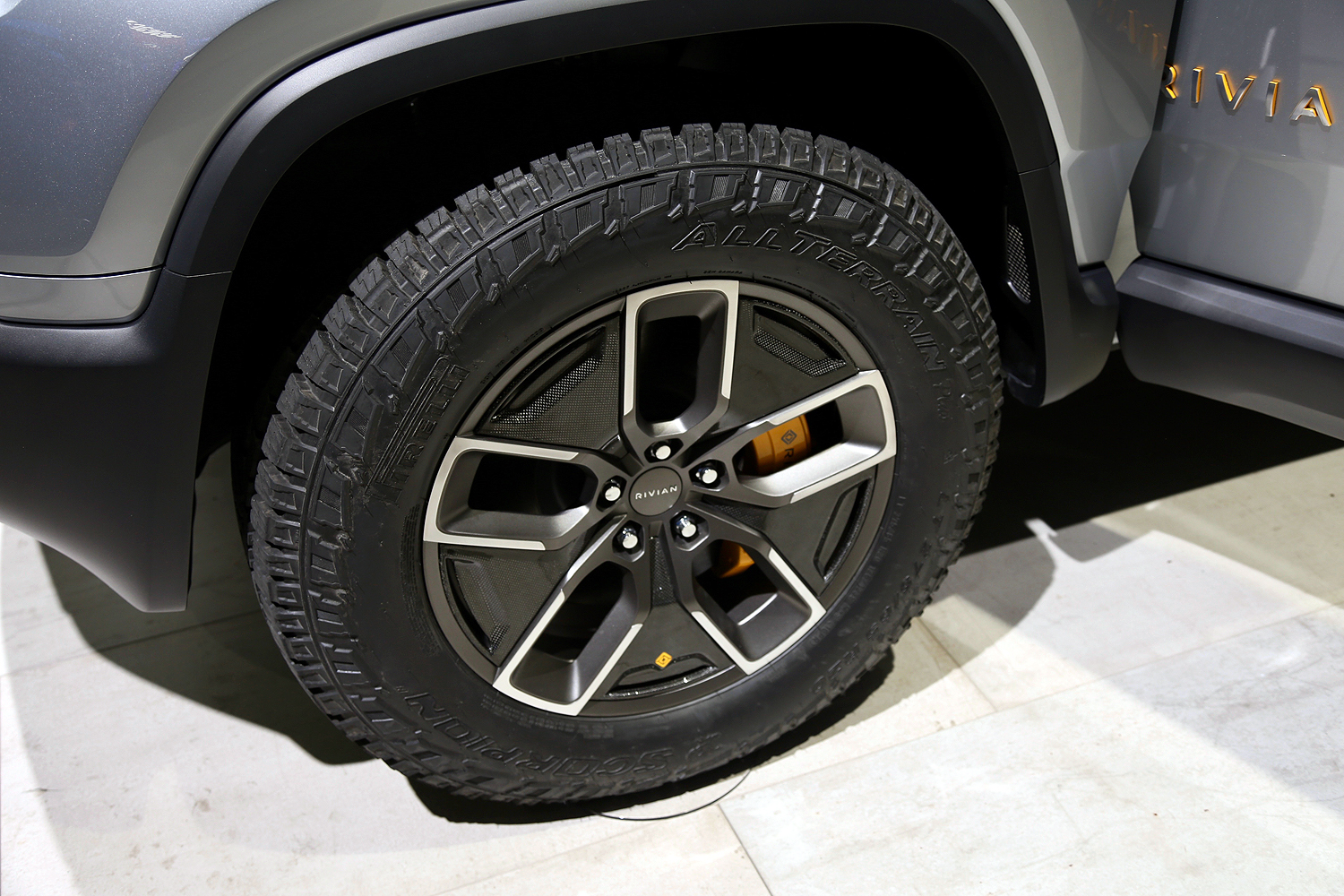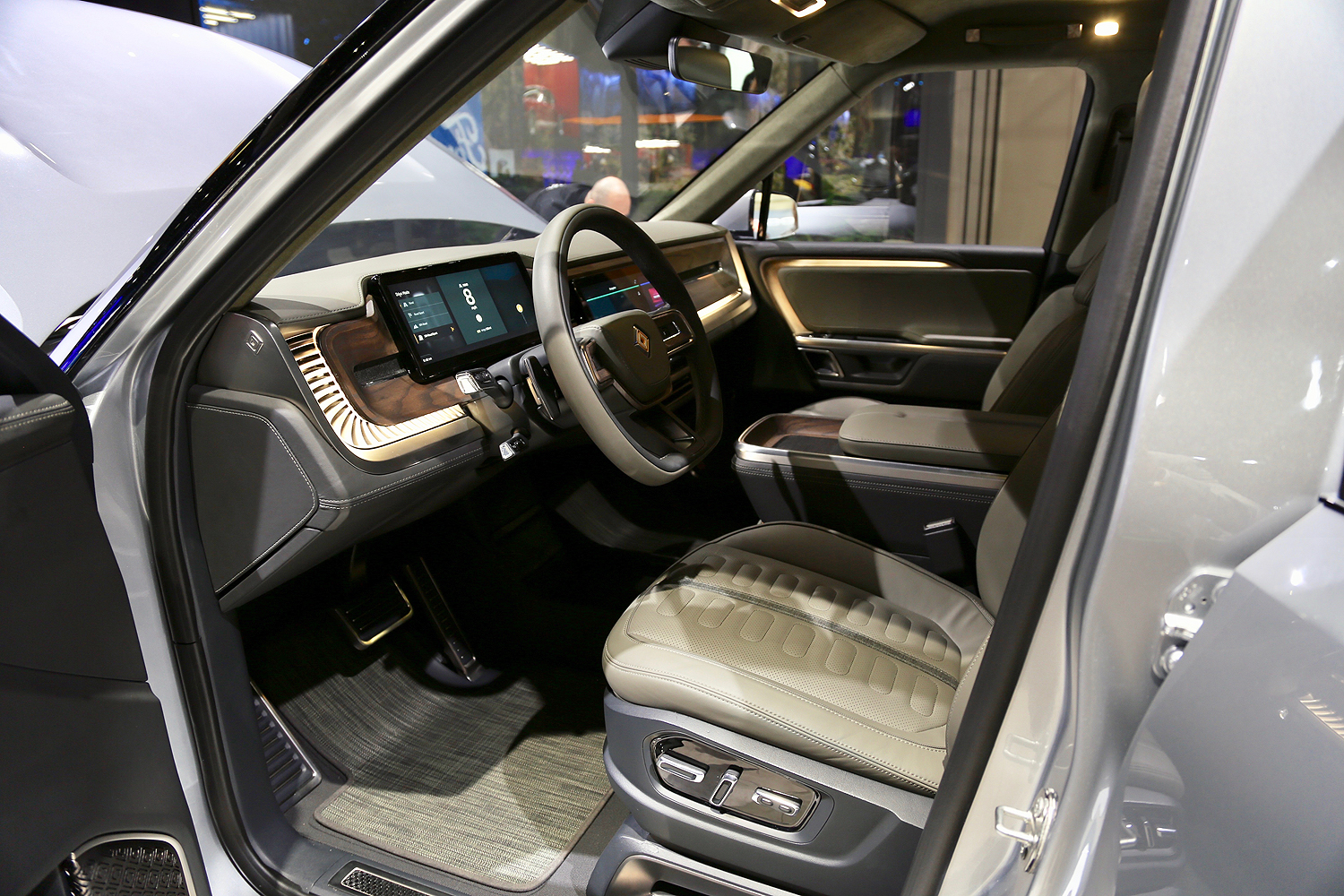When startups plan a new electric car, they tend to follow Tesla’s lead with a luxury model. But Rivian is taking electric vehicles in a more rugged direction. At the 2018 Los Angeles Auto Show, Rivian is launching the R1T, an all-electric pickup truck with up to 400 miles of range, and the ability to accelerate from zero to 60 mph in 3.0 seconds. The R1T will soon be joined by an SUV called the R1S.
The claimed 400-mile range is achieved with a massive 180-kilowatt-hour battery pack. Rivian will also offer 105-kWh and 135-kWh battery-pack options, with 230 miles and 300 miles of range, respectively. You’ll need the lighter 135-kWh battery pack to have the quickest R1T, as Rivian claims this version will do zero to 60 mph in 3.0 seconds flat. The longer-range 180-kWh model takes 3.2 seconds, according to Rivian, while the 105-kWh version requires 4.9 seconds to reach 60 mph.
Each battery pack comes with a different power output: the top 180-kWh model has a claimed 700 horsepower and 826 pound-feet of torque, the 135-kWh version is rated at 745 hp and 826 lb-ft, and the 105-kWh variant is rated at 402 hp and 413 lb-ft. All versions are limited to 125 mph, and Rivian claims maximum towing capacity of 11,000 pounds. Eventually, Rivian plans to offer “Level 3” autonomous-driving capability, meaning the truck will be able to steer, accelerate, and brake autonomously in certain situations during highway driving.
Similar in size to midsize pickup trucks like the Chevrolet Colorado or Toyota Tacoma, the R1T is built on what Rivian calls a “skateboard” chassis. General Motors coined that term for its early 2000s hydrogen fuel-cell concept cars, and the idea is basically the same here. All mechanical components are housed in the chassis, which then has different bodies placed on top to make different vehicles (Rivian is only discussing the R1T pickup and R1S SUV for now).
The R1T is powered by an electric motor at each wheel, giving it all-wheel drive. Going electric allows more precise control of torque output, Rivian noted, enhancing performance both on-road and off-road. The R1T also features adjustable air suspension that can jack the truck up to clear off-road obstacles, and Rivian claims it can drive through up to 1 meter (3.2 feet) of water.
The truck’s “skateboard” chassis freed up plenty of storage space. In addition to the bed, The R1T features a front trunk and a storage compartment where the transmission tunnel would be in an internal-combustion truck. Rivian also designed the R1T to act as a mobile power source: you can draw electricity from a 110-volt outlet (as well as numerous USB and USB Type-C ports) as well as air from the suspension system to run compressed-air equipment.
Pricing will start at $69,000, or $61,500 once the $7,500 federal tax credit for electric vehicles is applied. Rivian plans to begin deliveries in late 2020, starting with the 180-kWh and 135-kWh models. The 105-kWh version will follow “within 12 months” of the start of production, according to Rivian. The company is accepting $1,000 refundable deposits, and has secured a former Mitsubishi plant in Normal, Illinois, to build the truck. But like many startups, Rivian may find that building cars in large volumes is more difficult than it seems.


